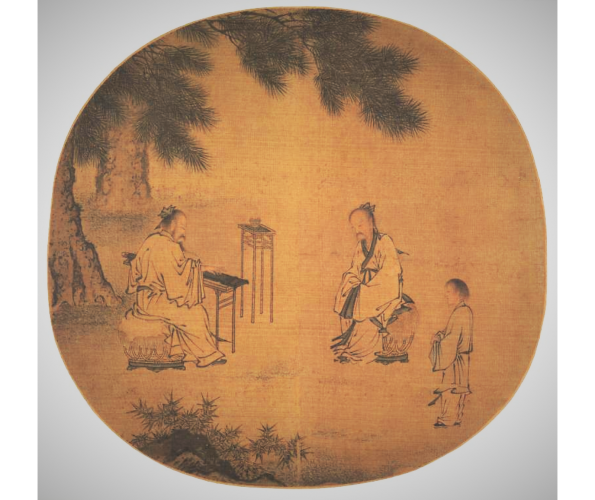Classicizing the Qin 琴 by Debasing Its Rival: The Literary Construction of the Zheng 箏 from the Wei-Jin through the Song Periods

From the Northern Song dynasty and on, the qin (seven-string Chinese zither) had been established as a musical instrument that represented the ideal music of China’s high antiquity. Literati figures such as Ouyang Xiu 歐陽修 (1007-1072) initiated a trend that constructed the qin as a musical instrument that connected people with ancient sages in the Confucian tradition and represented Zhou Dynasty musical ideals. This trend helped the qin gain meanings, aesthetic values, and poetic sensibilities beyond the musical sphere. Nevertheless, classicizing the qin was not an isolated phenomenon, but was accompanied by relegating other musical instruments to a relatively lesser position. Like the qin, the zheng is also a plucked string instrument with a more than two-thousand-year history. The modern zheng commonly has twenty-one strings, while in the Tang and Song periods, the prevalent form had thirteen. An examination of the zheng’s historical evolution from the Wei-Jin period to the Song dynasty in literati culture unveils the social context and uses of the zheng as well as the gender sensitivities and cultural significances that it had been associated with. In literary works composed during the Song, especially in the popular genre of ci lyrics, the zheng was used particularly frequently as a prop when the theme was about the life of courtesan girls. I argue that Song writers constructed the zheng as a rival to the qin, delimiting its sphere to the women’s quarters or even demimonde, and adding erotic and exotic touches in a way that framed the instrument as inferior and its sounds as resembling the corrupted music of “Zheng and Wei” in the ancient past. This contrast drawn between the qin and the zheng helped to build on the qin’s unique charms.
Meimei Zhang is an assistant professor in the Department of Comparative Studies in Language and Culture of Occidental College. Her research interest is in the intersection between music and literature in premodern China. Her dissertation, entitled “The Qin and Literati Culture in Song China,” examines the distinctive role that the musical instrument qin played in Chinese literati culture in the Song dynasty (960-1279) through its representations in literary texts.

